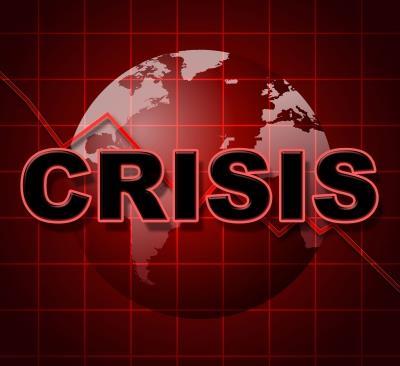New research highlights the top threats facing organisations over the year ahead. Here’s how risk managers can tackle interconnected risks and build resilience
Organisations are facing poly-crisis as a series of high-impact events are occurring simultaneously and exacerbating a multitude of interconnected risks, according to new research.
This includes ongoing economic uncertainty, the cost-of-living crisis, the Ukraine crisis and growing geopolitical turmoil, labour shortages, and extreme weather events fuelled by the climate crisis.

These are the findings revealed in the Chartered Institute of Internal Auditors’ annual Risk in Focus report.
Produced in partnership with 15 European Institutes of Internal Auditors, Risk in Focus 2024 is the result of a survey of over 700 Chief Internal Auditors across Europe.
The research focuses on the risks their businesses are expecting to face in the year ahead.
The report calls on boards to collaborate with internal auditors to navigate the poly-crisis by having an unwavering focus on organisational resilience and working together to respond rapidly to the myriad of immediate and fast-moving risks businesses now face.
Headline findings
- As organisations continue to grapple with an increasingly weaponised cyber-attack landscape cybersecurity is the biggest persistent threat.. 84% of respondents voted cybersecurity as the number one risk for the sixth year in a row. This is no surprise given recent high-profile cyber incidents, including the ransomware attack that impacted the payroll software provider of several well-known companies, coupled with an increase in so-called “wiper attacks” from state-sponsored actors.
- Off the back of the pandemic, organisations are continuing to face a human resources crisis, with 58% voting human capital, diversity, and talent management a top risk, making it the second biggest risk. This reflects ongoing labour shortages in key sectors of the economy, as businesses struggle to fill vacant positions and retain talent.
- Set against a fragile economic backdrop of stubbornly high inflation and rising interest rates, coupled with the War in Ukraine and rising geopolitical tensions, 43% cite macroeconomic and geopolitical uncertainty as a top risk.
- With the poly-crisis stress testing business continuity plans, 35% cite business continuity, operational resilience, crisis management and disaster response as a top risk.
- As high-speed technological developments like Artificial Intelligence pose a new and emerging threat, a third (33%) cite digital disruption and new technology as a top risk, although this is forecast to rise to 50% in three years’ time.
- With two of the hottest European summers on record and climate-related disasters happening around the world, almost a third (31%) cite climate change as a top risk. However, this is set to rise further still to over half (53%) in just three years’ time.
How to manage the threats
Risk in Focus 2024 makes several recommendations to boards, risk managers, and their internal audit functions on how to navigate the poly-crisis:
The first recommendation is that functions should work together to build greater organisational resilience.
This should include testing risk and mitigation strategies using scenario run-through exercises to identify inter-connected risks that could otherwise remain hidden.
Boards should ensure that risk managers and internal auditors evaluate the organisation’s cybersecurity awareness and training programmes and assess whether those are effective.
They should also ask whether the assumptions made on financial stress testing align with reality and whether economic scenario planning and simulation exercises are awake to emerging risks.
”Functions should work together to build greater organisational resilience.”
It is also crucial to assess whether the organisation’s values and objectives align and are clearly communicated within and outside the business to engage with potential and existing talent.
Finally, organisations must assess whether environmental sustainability goals are aligned with business strategy and have clear metrics.
Anne Kiem OBE, chief executive of the Chartered Institute of Internal Auditors said: “Our Risk in Focus research highlights the significant challenges businesses are facing given the velocity and variety of interconnected risks.
”With the economy still in a fragile state, boards will be focused on the increased climate-related pressures, geopolitical uncertainties, a dangerous cyber-risk landscape, inflationary pressures, and attracting and retaining the skills and talent needed to navigate more risky and volatile times ahead.
”In these unique and challenging times boards and their internal auditors will need to respond rapidly to immediate, fast-moving threats and have an unwavering focus on resilience.”
Organisations are facing a human resources crisis, with 58% voting human capital, diversity, and talent management a top risk. This reflects ongoing labour shortages in key sectors of the economy, as businesses struggle to fill vacant positions and retain talent.
Those organisations that fail to prioritise engagement will not only end up losing critical talent, but they also risk knock-on effects such as increased rate of attrition, loss of productivity and reputational risk.
Join our next webinar on how to win the war for talent and address people risks in your organisation:
We will explore the key people-related risks facing organisations, as well as the steps risk managers can take to minimise, mitigate or transfer their exposures.
Register to join at https://nqsm.zoom.us/webinar/register/WN_O388XuJPT8ifQ9zk4S-fXA#/registration
Join our Webinar on 2 November at 10:00am: People-related risks
- 1
- 2
- 3
 Currently reading
Currently readingPoly-crisis looms so boards and risk managers must act now






















No comments yet